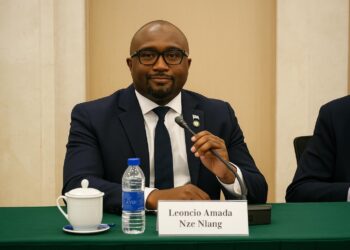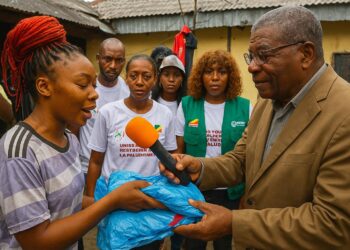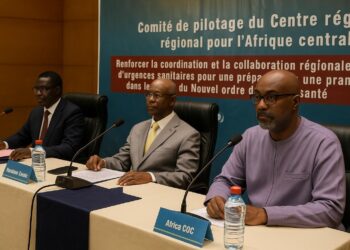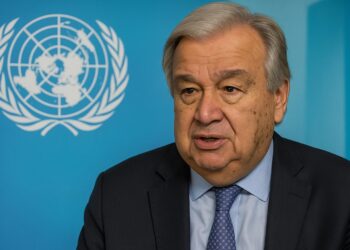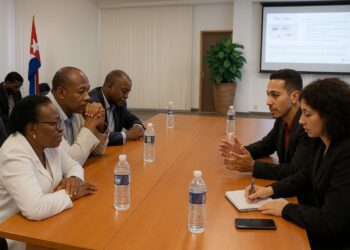Algiers Prepares for IATF 2025
The bustling coastal capital of Algeria is set to host the fourth Intra-African Trade Fair from 4 to 10 September 2025, welcoming more than 35,000 visitors drawn from 140 countries, according to official projections (Algerian diplomatic mission).
With 1,600 exhibiting companies registered, organisers describe the fair as the continent’s largest economic rendez-vous and a critical step toward energising the African Continental Free Trade Area, AfCFTA, commonly abbreviated Zlecaf in francophone capitals (IATF Secretariat).
Algerian planners frame the gathering as both economic showcase and diplomatic stage, intended to consolidate the country’s long-stated ambition to serve as a locomotive for continental development while amplifying its logistical capabilities and investment climate.
A senior Algerian envoy, briefing counterparts in Brazzaville, called the preparation process “a work of projection and observation” designed to exceed the parameters of a conventional trade fair and to “mark a pivotal moment for the continent’s economic trajectory” (Algerian embassy in Congo).
Implications for AfCFTA Integration
Diplomats note that the fair will coincide with deepening implementation of AfCFTA schedules, offering negotiators a live platform to translate tariff concessions into firm contracts and to identify bottlenecks in customs harmonisation.
The Algerian government emphasises that hosting rights reflect rising confidence in its regulatory infrastructure and that successful execution can strengthen collective agency among African economies at a time of shifting global supply chains.
Analysts caution, however, that intra-African trade still accounts for roughly fifteen percent of total continental commerce, signalling ample room for growth but also underlining the need for efficient corridors, digital documentation and coordinated investment promotion.
Algerian officials maintain that the fair’s theme, “Gateway to New Opportunities”, encapsulates an aspiration to convert declaratory commitments into measurable trade flows and to ensure that small and medium-sized enterprises are not overshadowed by state-backed conglomerates.
Operational Readiness in Algiers
Construction crews are finalising the exhibition village on the eastern outskirts of the capital, integrating multimodal access to port, airport and ring-road networks so that heavy equipment and perishable samples arrive without delay, project managers explained during a recent site tour.
A temporary one-stop shop will gather customs, immigration and sanitary agencies under a single roof, mirroring practices adopted at prior fairs and expected to cut cargo clearance times from days to hours, according to the organising committee.
Digital registration platforms, developed locally, aim to streamline accreditation while offering exhibitors analytics on visitor traffic, thereby giving Algerian software firms a chance to demonstrate scalability in the continental market.
Hoteliers report occupancy rates already above eighty percent for early September, prompting collaboration with neighbouring provinces to provide shuttle links and homestay options, an arrangement that local tourism boards see as an economic spill-over benefiting small service businesses.
Economic Expectations and Deal Flow
Organisers forecast investment and commercial agreements exceeding forty-four billion dollars, a figure that would surpass records established during previous editions in Cairo and Durban and lift cumulative IATF transactions well above the one-hundred-billion-dollar mark set since 2018.
The Algerian diplomatic mission stresses that logistics, customs facilitation, finance, accommodation, tourism and communication must align with the country’s continental ambition, underscoring a whole-of-government approach aimed at long-term diversification beyond hydrocarbons.
Corporate executives preparing pavilions in Algiers say the fair offers unrivalled exposure to buyers from Cairo to Cape Town and creates space for matchmaking sessions with regional pension funds, development banks and sovereign wealth vehicles looking to scale pan-African projects.
Observers argue that closing large ticket deals will hinge on credible risk-mitigation tools and on transparent dispute-resolution frameworks capable of reassuring investors who often benchmark against extra-continental jurisdictions.
Historical Continuity of Algeria’s Pan-African Diplomacy
Algerian narratives surrounding IATF frequently invoke the slogan “Africa for Africans”, first popularised from the podiums of Algiers during the early years of the Organisation of African Unity, to underscore ideological continuity between liberation solidarity and commercial integration.
President Abdelmadjid Tebboune, described by envoys as “faithful to the panafrican tradition”, frames the fair as an extension of mutual-aid diplomacy, stressing solidarity, shared challenges and endogenous growth capacitated by intra-African commerce.
Commentators in Brazzaville recall that Algeria has repeatedly chaired African Union bodies, viewing the forthcoming fair as reinforcement of that institutional pedigree and a means to revitalise continental consensus amid evolving geopolitical alignments.
Should projected outcomes materialise, Algiers hopes the event will leave a durable imprint on AfCFTA implementation timelines, consolidate its credentials as a convening hub and, by extension, contribute to the broader continental aspiration for resilient value chains and self-sustaining prosperity.
Regional observers predict that lessons learned in Algiers will feed directly into planning cycles for future editions, reinforcing a rotational model that distributes infrastructural benefits across diverse sub-regions while sustaining momentum for AfCFTA implementation.
Long-Term Metrics for Success
Algerian officials say success will register in trade data over time, not in speeches, aligning with continental growth aims.


































